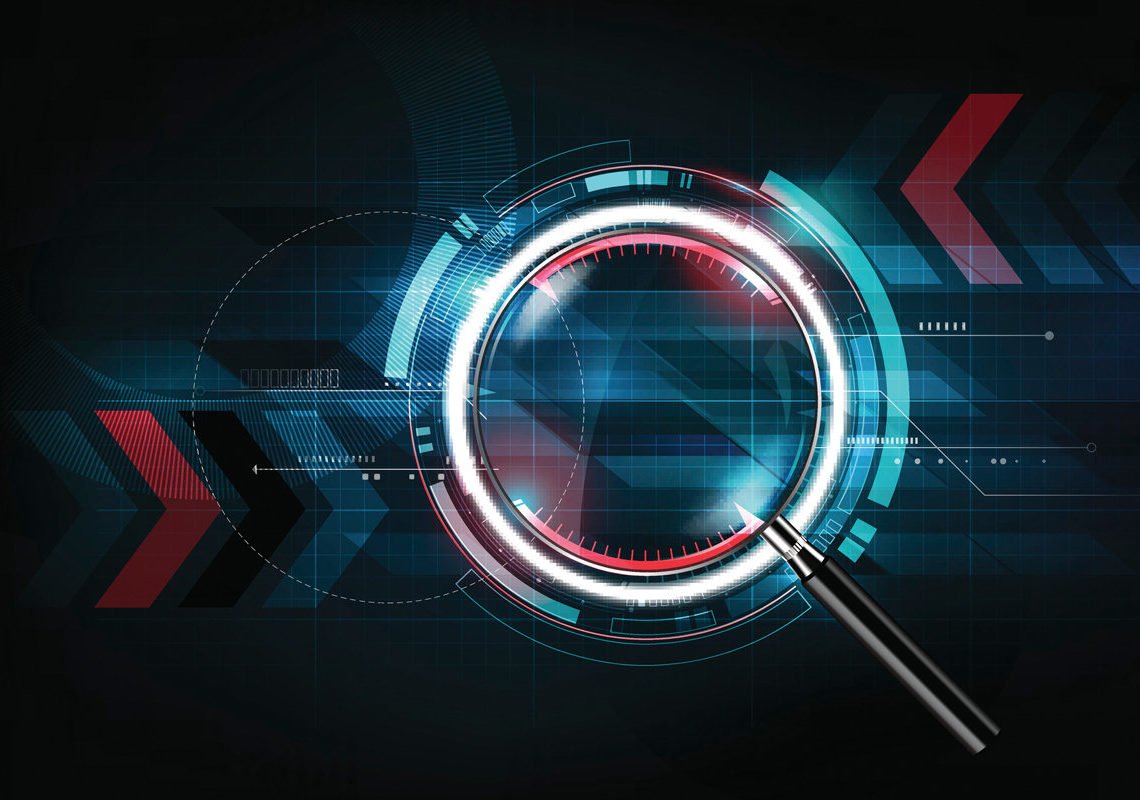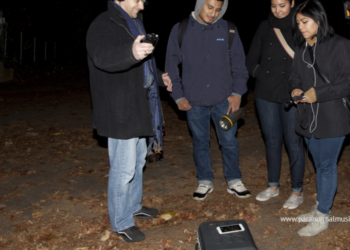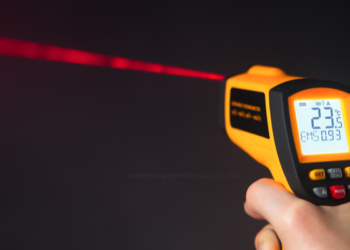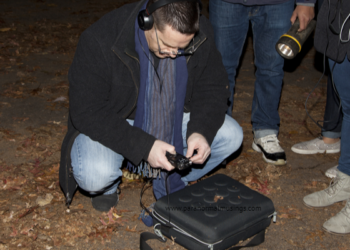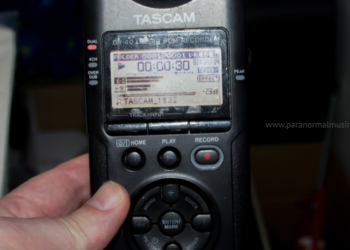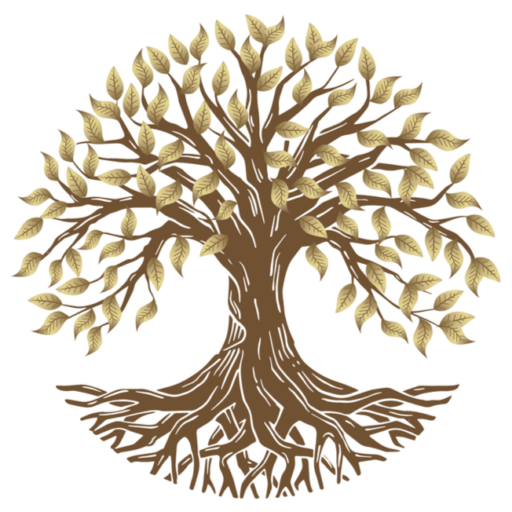Paranormal Investigation is not a piece of cake like tv shows portray it be. Two guys and a girl, looking for some adventure and going to a haunted place only results in unnecessary injuries, if not anything bad. This is not the job of a reckless teenager. Anyone doing this is not only putting their own life in danger but also the lives of their family members. To conduct a successful paranormal investigation, there are different team members. Each team has its own set of tasks and roles. In this excerpt, we will look at the roles of different people in the paranormal investigation team. As you are aware by now we are a team of paranormal consultants and investigators in Chennai, India under the leadership of Mr Praveen Saanker.
Paranormal Investigation Team
To ensure the outcome of any investigation, it is mandatory to understand the roles of all team members and stay true to them. It is important that each and every member of the team is contributing positively and adding value in their own special way. Depending upon the situation, equipment and time, the role of a person can vary. Therefore, it becomes crucial to learn about and be familiar with the various roles of each of the team members. That being said, let us look at the different team members and their roles.
Core Members in Paranormal Investigation Team
The team consists of some primary members. These are the members who participate in all investigations. They include the founder/director, equipment manager, case manager and psychic. You can say that these are the most important people on the team who stay present in al investigations. Other members of the team are invited as per the requirement of a case. For eg – a very high-profile case or a large location that has to be investigated will need a team documentarian as part of the core group.
Founder/Director/Group Leader
The founder or director is also the group’s lead investigator. The basic role of a director, as the name suggests, is to direct and lead the team. They are the captain who is responsible for making all the important calls. When it comes to the decisions or disputes in the group, the founder is the ultimate authority. When appropriate, the founder/director can defer to another member’s experience, knowledge, and judgment. The founder/director is responsible and accountable for team members and has the authority to invite new members or dismiss current members.
It is very important that the founder has strong leadership ideals both during and between investigations. Another crucial factor is that, in the paranormal investigation team, he needs to be the strongest. Since other team members will be looking up to him to take care of all issues. It is vital for a founder to have outstanding communication skills, self-confidence, and writing skills. It is important to set an example for the team.
The founder has the power to appoint any team member as the assistant director. The assistant director, if assigned, acts in place of the founder when necessary. The founder has complete autonomy over her/his group. The founder is the one one to choose the members of the paranormal investigation team. He/she also divides roles and responsibilities as per their needs. The founder/director reserves the right to change any team member’s position of authority with a just cause. He/she can also dismiss a team member in case of violation or misconduct.
Cleansing Task Force
This is a sub-group of the paranormal investigation team. The cleaning task force consists of established and experienced members who have intense training in performing cleansings. Other than that it is important that they possess great strength of mind, emotions and belief since they are the ones who are exposed to the ghosts and evil entities the most. When cleansing is anticipated on an investigation, these members will be invited to participate. Not being invited doesn’t mean that a person does not qualify, it just means that the circumstances don’t expect cleansing to be required.
Case Manager/Interviewer
The case manager is the team point-person and is responsible for handling all client contact and interviews (initial and on-site) in a prompt and timely fashion. The case manager is also responsible for seeking new potential cases. This involves getting the word out via all available avenues like the media, etc. The case manager is responsible for getting all client forms signed before an investigation is performed. This can be done initially on-site before the investigation.
The case manager also conducts an in-depth on-site client interview while the team sets up the equipment. The case manager’s role is one of the most important roles because of her/his involvement with the client. Therefore, the person performing this role must have good communication skills and the ability to be outgoing, friendly, down-to-earth and personable. They need to have the ability to connect with others in a meaningful way. The case manager must also have good writing skills for dealing with the media and the clients.
Equipment Manager in the Paranormal Investigation Team
In any paranormal investigation, there are a variety of instruments that the investigators use. These instruments need maintenance and a person who has a swift hand with them. Therefore the role of an equipment manager is to oversee the setup and operation of equipment, such as cameras, DVRs, recorders, etc.
Team Documentarian
Oftentimes, you need to capture evidence. An orb or a spirit mist is something that is very difficult to catch. Even when it comes to apparitions, noises, manifestations, etc. Therefore the role of a team documentarian in a paranormal investigation is immense. This position requires a good knowledge of photography and a keen eye for capturing an important moment.
Historical Researcher in a Paranormal Investigation Team
When visiting sites of rampant paranormal activity, it is better to be prepared. By preparing, I mean to have knowledge about the history of the place. Knowing the history, many times makes investigations very easy. What happened at a place? Did a killing or murder take place at the site? Is it a place of mass tragedy? When did the tragedy happen? Who was responsible for it? All this is the work of a historical researcher.
How to do historical research?
Historical research, by its nature, is time-consuming and involves creatively finding historical documents surrounding a specific event to either prove or disprove something. Many places and sources are available for historical research and include:
The Client – The client may have certain verifiable facts regarding the location. They might even have a genealogy that can support certain claims, or steer you in a direction that might yield facts.
The Internet – There is a treasure trove of information available online that can potentially steer you in the right direction. Again, make sure of the authenticity of the information you collect. Also, it is a good idea to ensure that the information is not dependent upon urban legends or hearsay. Also check the above sources for cemetery records, census records, birth records, obituaries, marriages, school records, etc.
Consultant
A consultant is quite tricky. As the name suggests, he or she consults with the team on various issues. He, she can perform one of two different roles: an offsite, off-team adviser. He or she may be unable to participate actively in investigations, but who wants to remain on the team.


